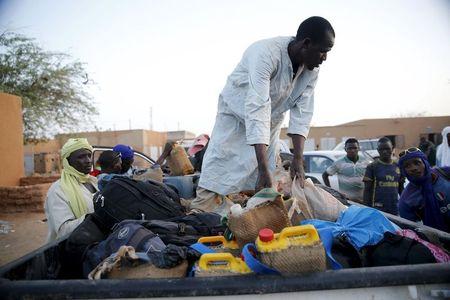Advertisement
EU launches operation against migrant smugglers
LUXEMBOURG (Reuters) - European Union foreign ministers agreed on Monday to launch a naval operation against gangs smuggling migrants to Europe from Libya, although the mission will be limited to intelligence-gathering for now due to lack of U.N. authority.
The operation is part of a stepped-up European response to a surge of migrants from Africa and the Middle East making the dangerous crossing from Libya to Europe.
Many have drowned in the Mediterranean, including around 800 killed in a shipwreck in April.
"The operation is being launched today. Let me be very clear: The targets are not the migrants, the targets are those that are making money on their lives and too often on their deaths. It is part of our effort to save lives," EU foreign policy chief Federica Mogherini told reporters in Luxembourg where the foreign ministers were meeting.
The operation, as initially envisaged by EU officials, was intended to disrupt the migrant traffickers' business and to capture and destroy their ships, possibly even in Libyan waters.
But the EU would require a U.N. Security Council resolution and consent from the Libyan authorities to operate in Libyan territorial waters and coastal areas.
Lacking both pre-conditions, the EU will limit its operations for now to sending ships and aircraft to patrol in international waters of the Mediterranean to gather information on the smugglers' activities.
The mission will start "in the coming days", Mogherini said.
EU officials still hope for Libyan consent and a U.N. resolution later that would allow them to tackle the traffickers. The EU would only be able to move to more aggressive actions if EU foreign ministers gave the go-ahead.
Britain, France, Lithuania and Spain, which all belong to the 15-member Security Council, had been drafting a resolution to approve the EU operation under Chapter 7 of the U.N. Charter, which allows the use of force.
But diplomats said the work was put on hold earlier this month pending Libyan consent to the operation, a major obstacle because two rival governments and parliaments are fighting for control there.
Gaining Libyan consent may depend on U.N.-brokered peace talks reaching an agreement on a national unity government.
(Editing by Ruth Pitchford)



















Add new comment